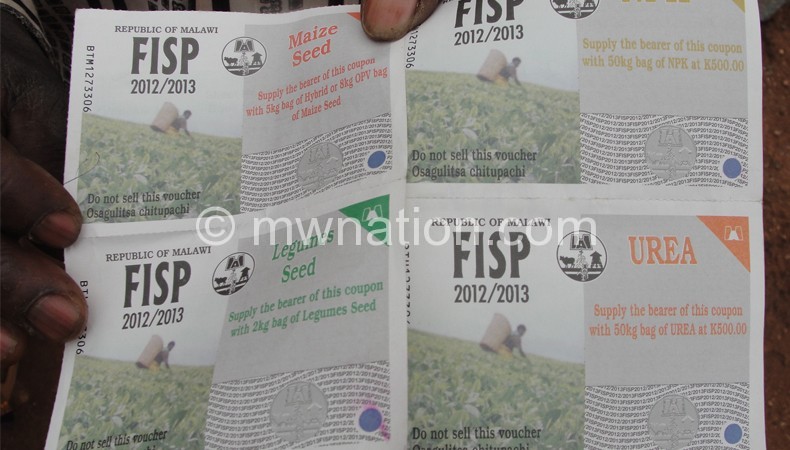Subsidy to cost beneficiaries more
Beneficiaries of the Farm Input Subsidy Programme (Fisp) will have to dig deeper into their pockets as government has announced an increase in the price of subsidised fertiliser as part of the reforms.
Minister of Finance, Economic Planning and Development Goodall Gondwe announced in Parliament yesterday that the farmer would have to add about K2 500 (US$6) to buy a 50 kilogramme (kg) bag of NPK and about K1 500 (US$3) to buy a bag of Urea fertiliser.
The development means that farmers will be paying K3 000 (US$7) for NPK and K2 000 for Urea.
By the end of the day, Fisp beneficiaries will contribute K6 billion to the cost of the subsidy while the cost to the government will be K40 billion.
The new arrangement is in response to proposals from the civil society organisations, notably the Malawi Economic Justice Network (Mejn) which argued that the subsidy programme was becoming unsustainable at a cost of K500 (US$1) per 50 kg bag of fertiliser to the farmer.
In its presentation during pre-budget consultations, Mejn lobbied that Fisp beneficiaries should pay at least 30 percent of the cost.
The reform on the price has come about because the government’s coupons would be valued at K15 000 (US$33), but the final selling price will range between K16 500 (US$37) and K17 500 (US$39).
Said Gondwe: “This means that the farmer will have to add an estimated K2 500 per bag for NPK and K1 500 per bag for Urea.”
Another Fisp reform which will be introduced is that about 40 000 metric tonnes of fertiliser procured by the private sector will be sold by private companies unlike in the past when State produce trader Agricultural Development and Marketing Corporation (Admarc) and Smallholder Farmers Fertiliser Revolving Fund of Malawi (SFFRFM) had that mandate.
The private companies would be responsible for procuring, transporting and selling the subsidised fertiliser in their outlets.





